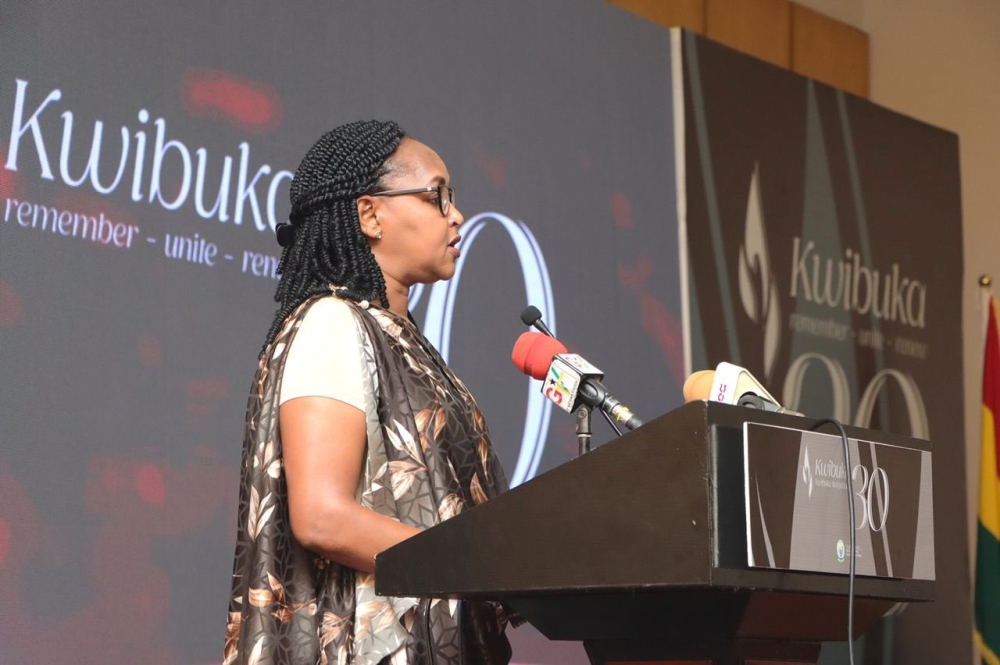

As the Rwandan community in Ghana commemorated the 1994 Genocide against the Tutsi, the Rwandan High Commissioner in the West African country said educating present and future generations about the tragedy was necessary to prevent similar atrocities.
Mbabazi made the call on Friday, May 24, during a Kwibuka30 event held in the Ghanaian capital Accra, where Rwandans, Ghanaian government officials, and members of the diplomatic corps gathered to honour more than one million victims of the Genocide against the Tutsi.
Mbabazi extended her appreciation to the countries that stood with Rwanda during the Genocide and called for renewed efforts to bring perpetrators to justice.


ALSO READ: Ghanaian university to set up monument in remembrance of Genocide against the Tutsi
"Thirty years ago, the world abandoned Rwandans to their bitter end as it has been said time and again but what is more heart-breaking is that for the past three decades, the world has continued to abandon Rwandans by not ensuring that justice gets served,” Mbabazi said.
"Fugitives incriminated in the Genocide against the Tutsi still roam freely. The world can and should do better.”
The diplomat called on world leaders to combat Genocide denial, hate speech, discrimination and other forms of negation that distort the truth about the Genocide against the Tutsi.
"Understanding the truth about genocide as a crime in particular the 1994 Genocide against the Tutsi requires that education be not a one-off thing,” she said.
"We must include modules in schools to teach about this heinous sin, which takes meticulous planning to commit. Only then can we make progress to our global promise of genocide never again.”
ALSO READ: Rwandan envoy to Malawi stresses need to combat Genocide denial
Ghana’s Deputy Foreign Minister for Regional Integration, Mavis Nkansah Boadu, said her country supports Rwanda’s quest to uphold the values of peace, unity and humanity and the memory of the Genocide victims.
"Let us remember that the fight against genocide and mass atrocities is a collective responsibility,” she said.
"As members of the international community, we must strengthen our resolve to prevent such tragedies, promote human rights, and uphold the dignity of every individual. The lessons of 1994 must continue to guide our actions and our policies, ensuring that such activities never occur again.”
ALSO READ: Study shows strong post-genocide resilience among Rwandans
Friday’s event concluded a series of activities organised this year to commemorate the Genocide against the Tutsi.
These included a ‘Walk-to-Remember’, a students’ commemoration of Kwibuka30 at Ashesi University and a symposium at the Ghana Institute of Management and Public Administration (GIMPA) in which delegates deliberated on the need to educate the world about the tragedy and to ensure similar atrocities do not happen anywhere in the world.


